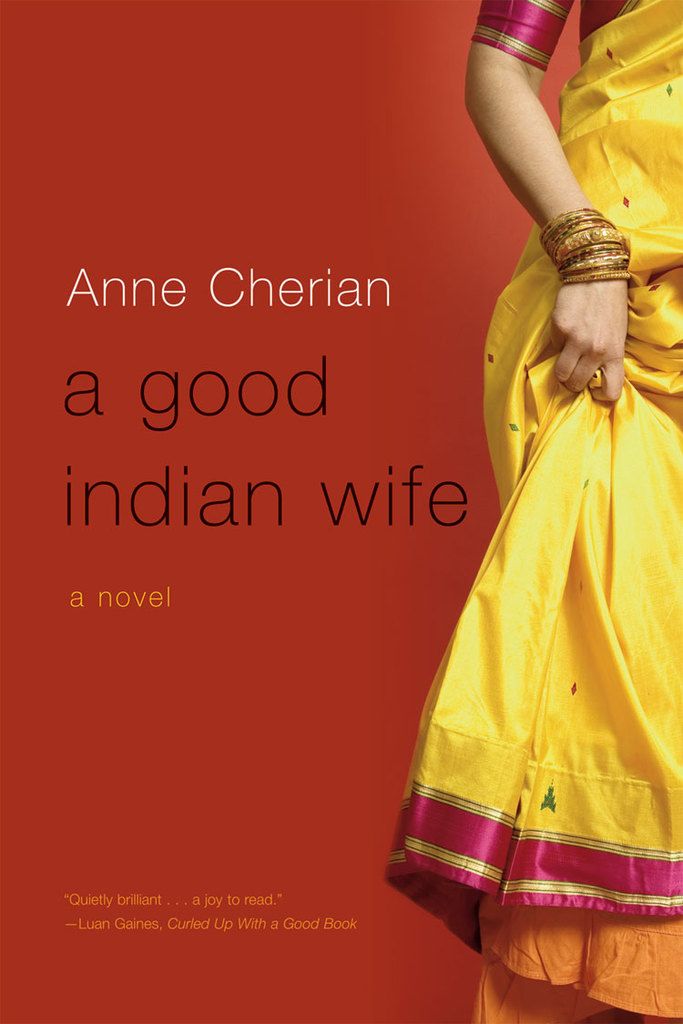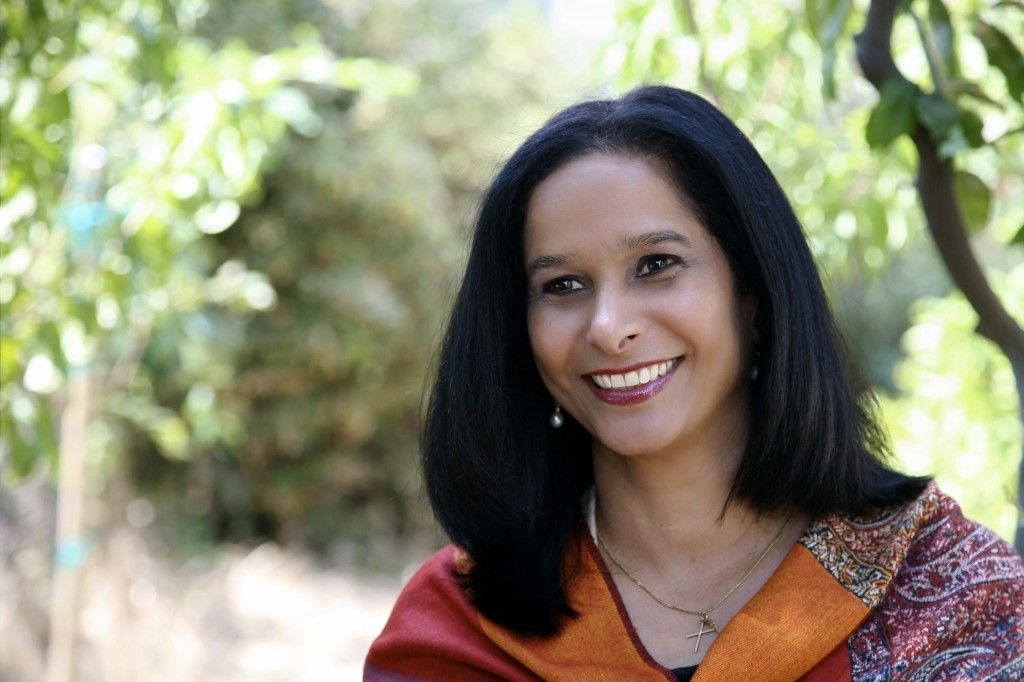A good Indian wife
Publié le 5 Juillet 2015
For those who need the summary of the story, please check Goodreads. The Good Indian wife is a novel of many qualities, in spite of a few flaws, perhaps because it’s Anne Cherian’s first. First a simple but effective story, based on a simple theme: can (Indian traditional) arranged marriage (with its family and community involvement) be an alternative to the Western version, based on total individual freedom? The author answers yes, and we’ll come to that in a minute. On the other hand, the character (Leila) which enables her to answer yes has been westernized somewhat in so far as she understands that certain compromises have to be made in order for the trick to work. But on the whole, her Indianness transcends her westernization by far. Other qualities rest on the evocations of relationships, which emerge as crispily as the cold mornings in the San Francisco streets, where the newly wedded spouse walks, both perplexed and free at last from family oppressiveness. The feminine characters especially are very real: her mother and sisters back home in Tamil Nadu, Neel’s girlfriend Caroline, who’s spent some time in France and has people pronounce her name Caroleen; then the spouses, Indian or not, of Californian colleagues, which Cherian takes time to individualize, and Leila’s Indian-American friend, Rekha, whom she meets in time of emotional need.
Some of the men / guys are nicely outlined as well, even if less from within. I’m especially thinking about doctor cum chum Sanjay. Still, it’s a proof of the novelist’s skill to have followed Neel’s thoughts throughout the book, and done something convincing in spite of some inconsistencies. I might as well speak now about the most embarrassing one, as far as I’m concerned: I know that many men lie about their desires, greeds, private arrangements, and don’t think twice about hiding what they don’t like about themselves. But I just think Neel’s constant lying, constant covering up even when faced with the most obvious reasons to believe that the truth would serve him better than these lies, all this was too much tolerated/accepted by Leila. She has good cause, mind you, and so has he: he too is placed from the start in a situation where, if he wants to retain a form of personal freedom, he has to hide what he likes and who he wishes to be. Being Indian, unmarried at 35 and with a white American girlfriend who’s only a secretary, all this means you can’t really speak frankly about the situation to the family who bring you back home on a pretext in order to marry you, without creating a total havoc. Yes, he’s almost blackmailed into accepting this unknown girl from his hometown; yes, he has this special tie with a grandfather who has been almost like a dad to him and who is part of the plot; and yes, he needs to be a good son because this is what everybody expects of him.
But what troubles me is that, even after his wedding to Leila, and during the first days in America, he tells her nothing of the truth! Of course, he knows the situation in which her marriage to him puts her: in case of rejection or divorce, she would not be able to go home without jeopardizing not only the family’s honour, but the marriageability of her sisters, creating everybody’s social shaming and perhaps killing the supposedly ill granddad with the shock. She might simply not be accepted home. But this is supposing Leila would tell everybody. Instead he remains silent about everything: and of course he continues to see Caroline. Technically, he calculates, Leila hasn’t been touched by him, so he isn’t fornicating. But marrying her, bringing her all the way to San Francisco, setting her up as his wife in his bachelor’s condominium: all this without needing to tell her the truth, and without feeling the utter guilt of not doing it? Because if he was a victim of emotional blackmail, then he’s not really responsible for being her husband: in India, everybody is constantly observing everybody, but back in America, things can be said, and solutions pondered. So this is why I believe Neel’s character is insufficiently explored. Leila likes him, needs him and pardons him because she’s trapped in the US, Okay, so from her point of view, it makes sense. But there’s something lacking on his side, which obliges the reader to confront the unpleasant situation of having this fine Indian girl choose a fraud as a husband, and he gets away with it.
When I say a fraud, again I don’t forget what he’s had to go through, just because he happens to be Indian and therefore part of a family system where individualism is trampled: for me this can justify protecting his choices and not going through the (probably) useless hassle of revolutionizing Indian traditions. He’s a fraud because back home in the States, where no one can pressurize him if he chooses, he prefers his own smug and deceitful silence to the honesty of explaining the situation to another equally wronged human being. And so the novel is slightly flawed there. Now what’s interesting is that nevertheless we are introduced to a “solution” to the arranged marriage problem which is rather original. Because they’re Indian, and because of the values both of them share (for Neel almost in spite of himself), they become a loving couple in spite of the horrendous relationship with which their marriage begins. Is it realistic? Yes, first because of the baby; Leila tells Neel she is expecting (he’s fallen for her, it isn’t just lust, even though her slim-and-full figure has worked wonders) and to his dismay, she doesn’t want to abort. He then comes to realize that she’s a strong-willed personality who believes in life-values; it so happens that these values are asserted at the right moment (he’s just back from India where he has seen his beloved grandfather die). And so being the weak-willed guy that he is, he probably understands she’s a rock he can hold in his debacle. This would be enough to vouch for arranged.
But for Anne Cherian, the arranged marriage isn’t just upheld because it favours a traditional nuclear family, with both parents and their children. She suggests that parents, family and the community have a knowledge about love and human relationships which can help couples when facing failure. It is because Leila is who she is (and who her family and community know who she is) that she tolerates and eventually wins over a scheming and lying husband. She’s been raised like her mother to accept that an Indian woman’s husband is her god, all right, but this says nothing about her sensitivity and intelligence. Because she too had had a pre-marriage love-story! No sex, of course, just platonic love, but the wow is that it was with a Muslim boy! It’s nice that we have this bit of her youth in the portrait: he was called Janni, and dated her on the bus trips to and from school. She was head over heels with excitement and passion. Then one day he invited her to the cinema, but someone saw them and told her dad, who came to extract her from the deadly trap which was going to close on her! She stays in quarantine in her bedroom for weeks, chastised by a horrified mother, and attempts to commit suicide. Only then does her family understand what they were doing to her. Nobody draws the conclusion that love is a serious thing, especially among adolescents, and she’s never allowed to see him again, but he’s there in her mind, in her musings when she’s suffering from solitude, and when one day she learns he’s dead, killed in a motorcycle accident, he stands as the witness of her own strength and determination to place love before social contingencies. Ironically, this same attitude will include and save Neel the prevaricator.
One word about Neel’s rejected girlfriend Caroline: didn’t she deserve partnering him, and does Anne Cherian’s vindication of Indian arranged marriage mean she did something wrong? From a moralistic Indian viewpoint, of course, sex outside marriage is wrong. But Caroline is an American and one can’t use the same rules to judge her. She genuinely loves Neel, and unlike him, is guilty of no double-dealing. She seems to suffer uselessly from the strictures of the arranged marriage system. So here I suppose the author’s answer would be a cultural and political one: India has developed (like many other more traditional countries) a system which people like her tend to think has a value even in today’s globalized and westernized world; she would probably vindicate the system by carefully separating it from forced marriage and other anti-women traditional institutions. Not only that, but this system has proven its worth, and could be tried, and rationalized even in the West: this is probably why we have Leila’s American-Indian friend Rekha come up one day with the “brilliant” idea of choosing arranged marriage for her thesis: in a way, Anne Cherian’s book is this completed thesis.
/image%2F1489169%2F20200220%2Fob_9722d6_banner-11.JPG)

